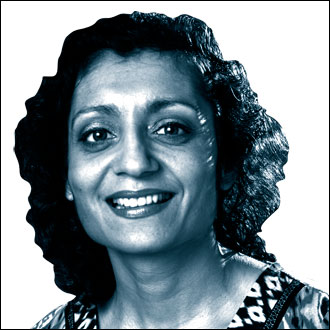As I wandered around the sights and sounds of St Paul’s Carnival in Bristol last month it was slightly strange to be thinking about death. But I was.
I took in the loud reggae music and the combined smells of jerk chicken and cannabis smoke and felt honoured to walk through the streets and be met with a cheery ‘Hey Doc’ from people of all races, colours and ages.
I admired the numbers of Muslims present in the midday sun, in spite of fasting for Ramadan and was struck by how truly multicultural we have become.
But beneath the colourful exterior of St Paul’s lie stubborn health inequalities. We may all come together as one to celebrate carnival, but – in death – we are not all equal. Bristol has a 9.4 year difference in life expectancy between wards and the majority of my practice population would fall in the lower end.
We know many of the factors responsible for some of these differences – poverty, race, smoking, alcoholism and obesity. Genetics and the accident of being born a particular race also play a major part. My own father – who was of Pakistani origin – died from an MI thirty years ago at the relatively young age of 59.
Yet knowing what lies behind these differences has not enabled us to minimise them.
GPs are continually cited as being the bastions of public health implementation, yet this ambitious model doesn’t fit well into a ten-minute consultation. It is not unusual for me to see men in their 30’s and 40’s that have failure of one or more organs due to heart disease, diabetes, hypertension or a combination of all three.
In spite of this massive disease burden, few extra resources are channelled towards these patients within primary care. Our weighted capitation fee only takes into account deprivation, but not ethnicity or language. There will be an enormous workload in many practices that have large numbers of patients from a South Asian or Caribbean race, but practice funding does not reflect this. With the shrinking of QOF and money moving to the global sum from April, practices with low elderly but high disease prevalence will find themselves losing even more.
If we were really committed to reducing the health inequalities in society, we would address these issues with appropriate funding in primary care and a consistent public health approach. Instead of mass screening and NHS Health Checks for the worried well, these funds need to be targeted to those with the highest lifetime disease risks, in order to allow intervention at an earlier stage. And these measures need to be backed up by aggressive public health campaigns, incorporating both education and legislation.
It is a scandal that 30 years on from my father’s death, many more children from Asian and Caribbean families attending St Paul’s Carnival will experience the premature loss of a parent. Unless GP funding streams reflect the extra workload for practices serving certain populations, these deaths will continue.
Pulse October survey
Take our July 2025 survey to potentially win £1.000 worth of tokens













